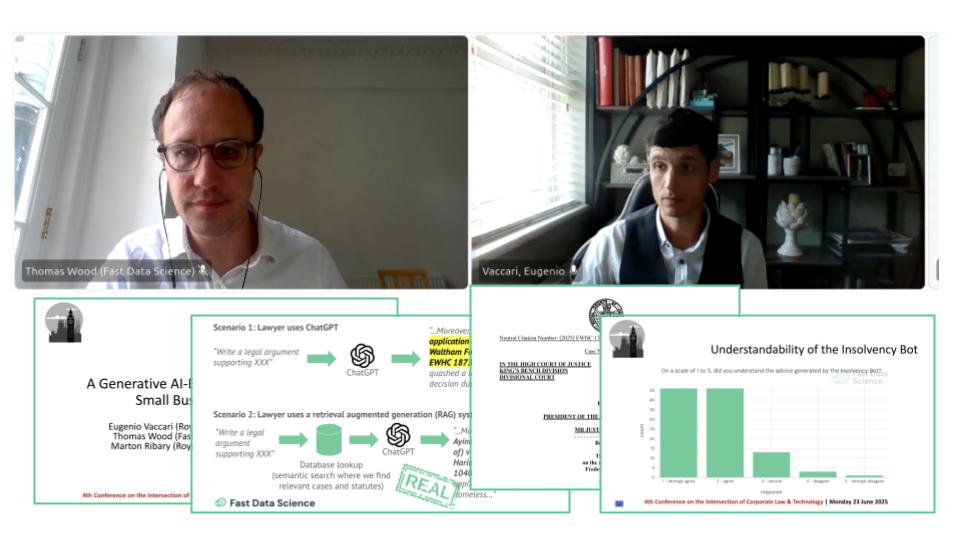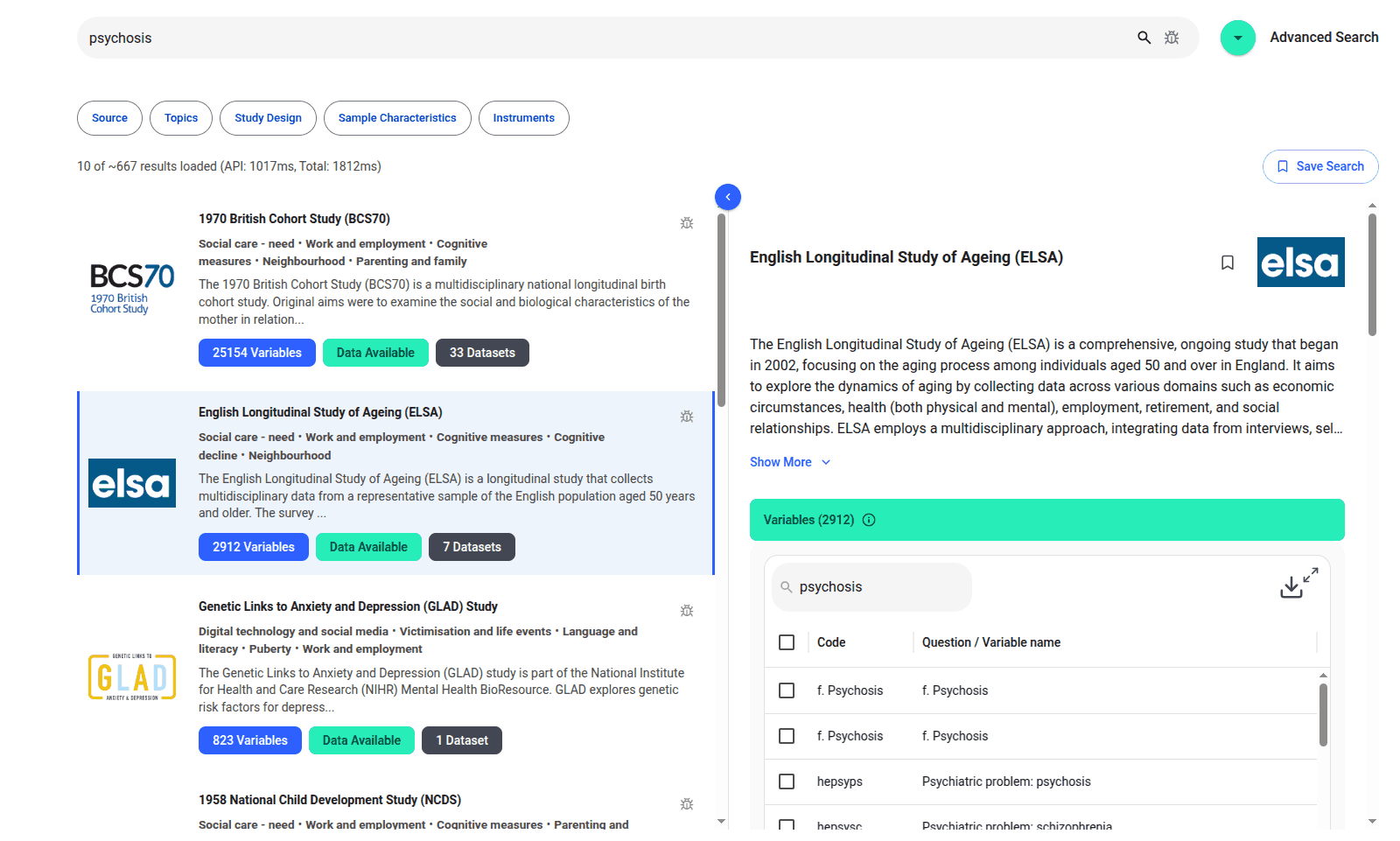
This was an event with a strong theme around legal AI.
Dr Eugenio Vaccari of Royal Holloway University and Thomas Wood of Fast Data Science presented “A Generative AI-Based Legal Advice Tool for Small Businesses in Distress” at the 4th Annual Conference on the Intersection of Corporate Law and Technology at Nottingham Trent University
Talk abstract:
We developed and tested the performance of a retrieval augmented generation (RAG) system for answering legal queries related to corporate insolvency in England and Wales. The Insolvency Bot relies on open-source legal information and HMRC forms to provide sound responses to a user’s query focusing on insolvency matters regulated by English law. According to a tailor-made mark scheme, we show that our Insolvency Bot consistently outperforms LLMs queried without our RAG setup, and we show that newer versions of LLMs consistently outperform older ones when queried with the Insolvency Bot’s RAG enhancements, and its data sources. An additional user experience survey suggested the need for creating two versions of the bot, one for lay people who expect practical and actionable advice and another for professionals with the relevant legal authorities. Our legal chatbot demonstrates potential to ensure “access to justice” to affected business owners by combining a generative AI system with a trusted knowledge base. The system could be expanded to cover cross-jurisdictional and insolvency-related queries and could be further improved in its technical architecture.
| Time | Speaker | Topic |
|---|---|---|
| 10:45-11:15 | Keynote speaker Dr Akshaya Kamalnath at Australian National University | Corporations, Technology, and the Law |
| 11:15-11:55 | Dr Eugenio Vaccari, Dr Marton Ribary and Thomas Wood | A Generative AI-Based Legal Advice Tool for Small Businesses in Distress (the Insolvency Bot) |
| 13:00-14:20 | Dr Kayode Akintola, University of Sheffield and Pearl Akintola | Augmenting Corporate Agents’ Intelligence in Corporate Insolvency Proceedings |
| 13:00-14:20 | Dr Neringa Gaubienė, University of Vilnius | Understanding AI Literacy Requirements Under the EU AI Act: A Business Perspective on Compliance, Risk, and Opportunity |
| 13:00-14:20 | Dr Simge Aslan, University of Nottingham | Digital Assets and Automated Transactions in Insolvency |
| 14:20-14:50 | Joint discussion of issues arising and collaborative applications |
Dr Akshaya Kamalnath delivered an interesting keynote about corporate AI, and digital governance. She discussed the implications of self-driving corporations, i.e. corporations where the board is entirely AI driven, and whether that is desirable. She brought up the idea of human in the loop and how it cannot always act as a reliable check on AI behaviour, citing research from military contexts.
We had a number of fascinating queries about the Insolvency Bot. For example,
More information: https://www.ntu.ac.uk/about-us/events/events/2025/6/the-4th-annual-conference-on-the-intersection-of-corporate-law-and-technology
Ready to take the next step in your NLP journey? Connect with top employers seeking talent in natural language processing. Discover your dream job!
Find Your Dream Job
We are excited to introduce the new Harmony Meta platform, which we have developed over the past year. Harmony Meta connects many of the existing study catalogues and registers.

Guest post by Jay Dugad Artificial intelligence has become one of the most talked-about forces shaping modern healthcare. Machines detecting disease, systems predicting patient deterioration, and algorithms recommending personalised treatments all once sounded like science fiction but now sit inside hospitals, research labs, and GP practices across the world.

If you are developing an application that needs to interpret free-text medical notes, you might be interested in getting the best possible performance by using OpenAI, Gemini, Claude, or another large language model. But to do that, you would need to send sensitive data, such as personal healthcare data, into the third party LLM. Is this allowed?
What we can do for you